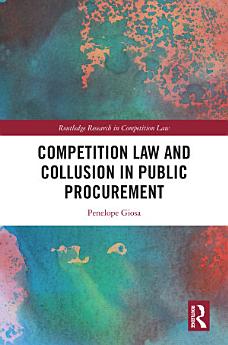Competition Law and Collusion in Public Procurement
About this ebook
Public contracts account for a significant proportion of EU expenditure. In sectors such as energy, transport, social protection and the provision of health or education services, public authorities are the main purchasers. It is important to ensure that public contracts are awarded in an open, fair and transparent manner that enables domestic and non-domestic firms to compete on an equal basis, with the aim of improving the quality and lowering the price of purchases made by public authorities. This book assesses the competition law enforcement mechanisms that competition regulators bring to the area of public procurement in the attempt to deter bid rigging. It analyzes key tools for the public and private enforcement of competition law in the domain of public contracts, such as the leniency programme, damages claims for bid rigging and the whistle blower programme. The book uses auction theory as benchmark to assess the risk of collusion in the context of procurement procedures and techniques. Offering a holistic analysis informed by research, it makes recommendations for better design, set up and management of public tenders without distorting competition. Highlighting the need to make use of competition law enforcement mechanisms in the battle against collusion in public procurement, it identifies ways in which the procurement process can be improved, to reduce and prevent bid rigging.
The book will be of interest to researchers in the field of competition law, public procurement and EU law.
About the author
Penelope Giosa is a Lecturer in Law at the University of Reading and an Associate Fellow of the Higher Education Academy. She is also a qualified lawyer (not currently practising law) in two countries, Greece and Cyprus and the Convenor of the SLS Comparative Law section. Her research interests extend to the fields of Competition Law, Public Contracts and Economic Crime. She also takes a particular interest in State Aid and the role of Food Law in sustainable development and addressing climate change.




